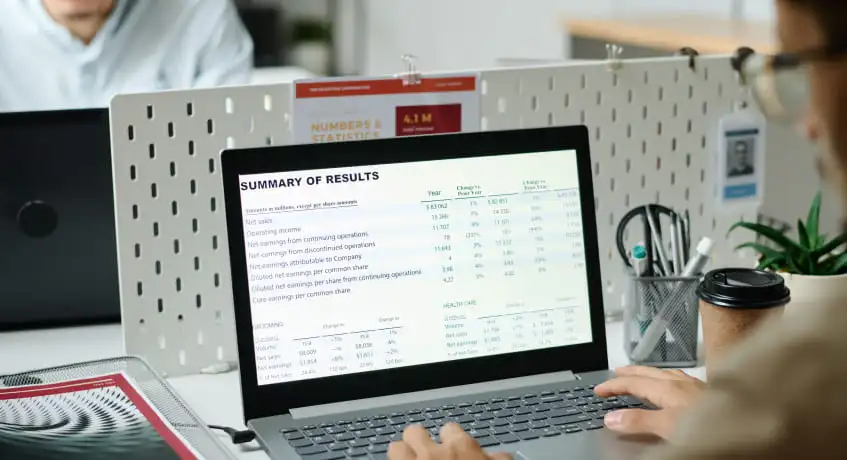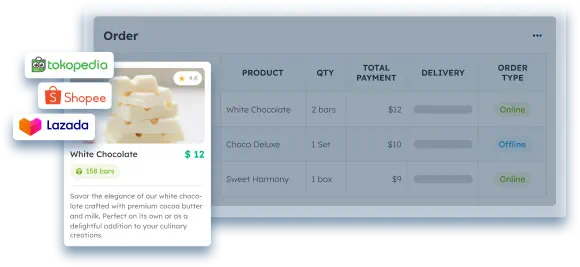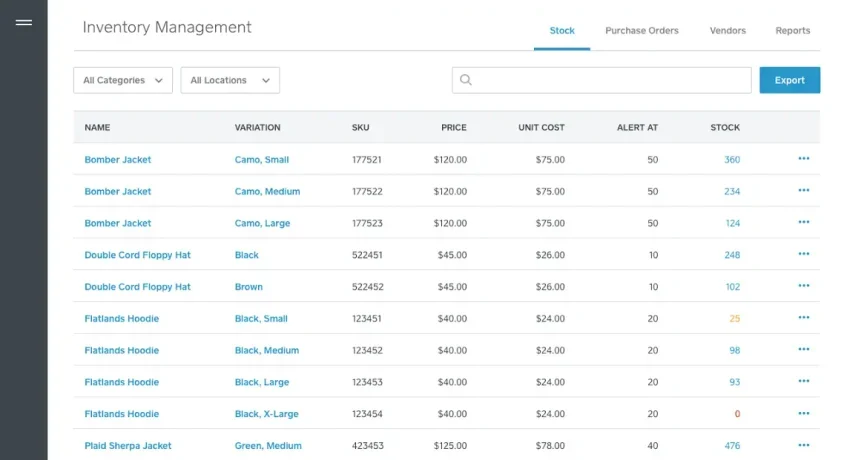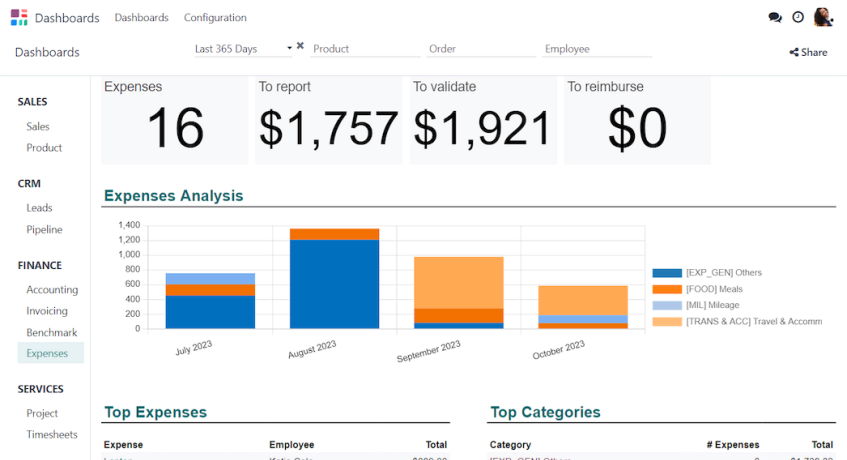Singapore’s retail sector is rapidly evolving, and staying ahead requires utilizing digital tools. A retail app is vital for tracking inventory, sales, and other business operations. Without a comprehensive solution, organizations suffer difficulties such as disconnected systems, inventory errors, and delayed customer service, which stifle growth.
According to the IMDA, omnichannel retail accounted for more than half of Singapore’s retail spending in 2022 and is anticipated to expand 21.2% by 2026, demonstrating the importance of digital tools such as retail applications in effectively managing stock, sales, and customer engagement.
This guide breaks down the best retail apps for businesses in Singapore, including ScaleOcean, Shopify, Square, Lightspeed, and more. It covers what these retail management applications offer, what to look for, and helps you make an informed choice for your business’s growth.
- A retail management application is a software platform that centralizes a retailer’s daily business processes. It serves as the digital backbone of the organization.
- The key benefits of a retail management system include real-time data insights, streamlined automation, personalized customer experiences, and unified omnichannel management.
- The 6 best retail apps for businesses in Singapore 2026 that include ScaleOcean, Shopify, Square, Lightspeed, and more.
- ScaleOcean’s retail ERP software provides a unified solution that addresses these challenges, offering a scalable platform for managing your entire business.

The Power of Apps for Modern Retailers in Singapore
The app field is wide, encompassing everything from consumer shopping apps to business solutions. For retailers, integrated retail management solutions (Retail ERP) are the true game-changer. These sophisticated systems function as a business’s central nervous system, simplifying operations and increasing efficiency.
Retail ERP applications integrate all parts of a retail organization, including inventory, sales, and customer management. These apps redefine how businesses operate by combining everything onto a single platform, resulting in easier workflows, better decision-making, and faster responsiveness to market changes.
What is a Retail Management Application?
A retail management application is a software platform that centralizes a retailer’s daily business processes. It serves as the digital backbone of the organization. Both e-retailers and traditional businesses must optimize operations by integrating important activities such as POS, inventory, CRM, and e-commerce into a single system.
Retail management software combines critical operations such as point-of-sale, inventory keeping, customer relationship management, and sales analytics. This unified system delivers a complete picture of your business, minimizing errors and streamlining operations by centralizing critical information in one location.
Key Benefits of a Centralized Retail Management System
Having a single system to manage everything brings significant advantages for businesses. It directly impacts your bottom line and boosts overall efficiency, especially for those using a growing e-retailer app, helping streamline operations and improve performance. Let’s take a look at some of the key ones that tend to matter most in this space:
1. Real-time Insights and Data-Driven Decisions
With a centralized system, you actually get to access data as it’s happening, which is a really powerful thing for operations. This means no more waiting for end-of-day reports just to figure out how you’re performing, and it gives you the clear ability to make smarter decisions on the fly, which is practical for retail management applications.
You can see right away what products are really selling well, or if some of your stores might be underperforming a bit. This kind of real-time information is super important, allowing you to react quickly to market trends, adjust your strategy, and optimize things without too much guesswork involved.
2. Streamlined Operations and Automation
Manual tasks, let’s be honest, are often a huge drain on time and resources for any retail business, and that’s precisely where these types of retail management applications really start to shine. They automate repetitive tasks, like updating inventory after each sale, allowing staff to focus on more important tasks like customer service.
By connecting all these different departments, from the warehouse right up to the sales floor, information flows pretty seamlessly across the entire operation. This setup really cuts down on bottlenecks and communication errors that can crop up, and the result is just a much smoother, more efficient operation throughout the business.
3. Personalized Customer Experience
In today’s retail world, personalization is absolutely key if you want to build proper customer loyalty. A good retail app collects and organizes customer data, including their purchase history and preferences, making it easier to create targeted marketing campaigns and promotions that genuinely resonate with them.
You can then offer up personalized recommendations or loyalty rewards, which makes customers feel genuinely valued in the process. This tailored experience helps turn one-time buyers into loyal customers, offering a significant competitive advantage, especially for e-retailer app users in Singapore.
4. Unified Omnichannel Management
Customers shop across several channels, online, in-store, and social media, and managing them may be a headache without the correct retail app. A unified software integrates all channels, allowing you to manage your physical business (for example, on Orchard Road) as well as your online presence.
Unified omnichannel management allows customers to buy online and return in-store, with purchase history and loyalty points synced across all channels. The best retail management solutions make this seamless experience possible, meeting modern buyers’ expectations.
5. Efficient Inventory Management
Poor inventory management, honestly, can really be the death of a retail business, leading to lost sales from stockouts or just wasted capital on too much overstock. A solid retail app gives you a very clear, real-time view of your stock levels across all your locations, helping you maintain optimal inventory levels at all times, which is critical.
The system can even automate purchase orders when stock starts running low, and that’s a massive help for daily operations. This ensures you consistently have your best-selling products available, and better inventory control like this ultimately means improved cash flow and higher customer satisfaction overall.

Essential Features of a Modern Retail App
When browsing through retail applications, it is evident that they provide a variety of functions. While some are critical, others are simply extras. Understanding the core, essential elements of current retail business software is crucial. Let’s look at the must-have features for your app:
1. Point-of-Sale (POS) System
Consider the point of sale (POS) to be the heart of any retail organization. It is where all transactions take place. A modern point-of-sale system should have more than just a cash register, with intuitive, rapid, and capable payment processing, particularly for newer mobile payments. This includes local services such as NETS and PayNow.
A strong retail POS system integrates with your inventory and customer databases, updating stock levels and purchase histories for faster checkouts. This supports digital payments like QR codes. According to Telescope Gov, QR code adoption reached 32,000 points, though only 20% of retail locations have fully implemented it.
2. Inventory Management
We’ve mentioned it, but it bears repeating. Inventory management is incredibly critical, maybe even more so for a busy e-retailer app. Your retail management app must offer real-time inventory tracking across all channels, including stock transfers, purchase orders, and supplier management, ensuring everything stays organized.
Seriously consider looking for those advanced features, like proactive low-stock alerts and automated reordering, which can really streamline things. The whole point here is to make managing your stock as hands-off as humanly possible, ideally using a smart retail app Singapore businesses might find useful, such as order fulfillment software.
3. Customer Relationship Management (CRM)
Having a CRM system built right into your retail app is essential for truly understanding and engaging with your customers in a meaningful way. It really should create a detailed profile for each customer, carefully tracking their purchase history, contact details, and even their preferences.
With a robust CRM, you get the power to segment your customers effectively for much more targeted marketing campaigns, which is a game-changer. You can also easily implement loyalty programs and offer truly personalized service, making each customer feel valued.
4. E-commerce Integration
Let’s face it, for any modern retailer today, a strong online presence isn’t just nice-to-have, it’s an absolute must. Your retail app, often part of comprehensive retail management applications, simply has to integrate seamlessly with your chosen e-commerce platform, be it Shopify, WooCommerce, or another solution.
This kind of integration is genuinely the secret sauce for delivering a true omnichannel experience to your customers. It’s what enables handy features like click-and-collect or even letting customers view in-store stock levels directly online. Operating without it is like running two separate businesses, creating a recipe for chaos.
5. Reporting and Analytics
What’s the point of all that data if you can’t make sense of it? A strong retail app, especially for businesses using apps for retail, comes with powerful built-in reporting and analytics tools to help make informed decisions. These should offer customizable dashboards with key metrics like sales trends, top products, and customer value.
These powerful insights are absolutely vital for understanding exactly what’s performing well and what might not be working so great within your business. You get to use this rich data to make genuinely informed decisions about everything, from your marketing efforts to how you merchandise your products.
The Best Retail Management Apps and ERP Systems for Singapore
Finding the proper solution for your retail business can be difficult, since options range from simple POS systems to big ERP solutions. Here, we’ll look at the best retail apps and ERP systems available in Singapore, highlighting their capabilities and how they may help businesses grow:
1. ScaleOcean’s Retail ERP Software
ScaleOcean’s retail ERP software stands out as a holistic option for firms seeking to grow. It is intended to address the prevalent issue of disconnected systems by providing a unified platform that consolidates all of your operations, making it perfect for expanding enterprises.
ScaleOcean, a modern all-in-one ERP, integrates POS, inventory, CRM, accounting, and e-commerce into a single platform. Built for scalability, it’s designed to suit the needs of Southeast Asia’s rising businesses, streamlining operations and driving growth.
ScaleOcean offers a free demo, allowing businesses to try out the capabilities of its retail ERP software firsthand. This demo explains how ScaleOcean can streamline processes and increase efficiency. Furthermore, ScaleOcean is qualified for the CTC grant, which assists firms with digital transformation.
Key Features:
- Integrated Inventory Management: Track inventory in real-time across multiple locations, ensuring accurate stock levels and efficient warehouse management.
- Seamless Point of Sale (POS): Streamline transactions with a POS system that integrates with inventory, customer data, and financial systems for efficient sales management.
- Customer Relationship Management (CRM): Build customer profiles and track interactions to personalize marketing and improve customer retention with ScaleOcean’s CRM tools.
- Advanced Reporting and Analytics: Gain real-time insights into sales, inventory, and performance to optimize decision-making and streamline operations for growth.
- E-Commerce Integration: Manage both online and offline sales from a single platform with seamless integration to e-commerce platforms, enabling omnichannel sales.
| Pros | Cons |
|---|---|
|
|
Best For: For Singaporean shops seeking a single solution to handle all facets of their business in one location, ScaleOcean is perfect. It provides a single source of truth for smooth operations, increased productivity, and better decision-making by doing away with the need to manage several disjointed apps.
2. Shopify E-Retailer App
Shopify is a popular e-commerce platform, particularly for companies that are just getting started online. Along with a number of features intended to assist businesses in selling online, such as payment integration and basic marketing tools, it offers a dependable point-of-sale system for physical storefronts.
Shopify provides inventory management in addition to the standard e-commerce features, which aid business owners in keeping track of their merchandise. It is appropriate for small to medium-sized merchants because it offers a variety of apps that allow users to tailor the platform to their expanding company demands.
Key Features:
- User-friendly e-commerce platform.
- Integrated POS system for physical stores.
- Mobile payment support.
- Multi-channel selling capabilities.
- Inventory tracking and management tools.
| Pros | Cons |
|---|---|
|
|
Best For: Small to medium-sized businesses seeking a comprehensive, user-friendly solution for integrating their online and physical stores should consider Shopify. It is perfect for companies expanding their retail operations and those just beginning their e-commerce adventure.
3. Square Retail Management Platform
Originally well-known for its recognizable card reader, Square has developed into a full-fledged business environment. The platform is a sensible option for small businesses because it provides an intuitive point-of-sale system, appointment scheduling, payroll administration, and marketing capabilities.
Square is especially well-liked by small companies, including cafes, shops, and service providers. Square might, however, run into issues when the company expands and its operational requirements get more complicated, particularly when handling multi-channel inventory and larger operations.
Key Features:
- Simple POS system.
- Tools for appointment scheduling and payroll.
- Marketing tools for promotions.
- Multi-location management capabilities.
- Easy integration with third-party apps.
| Pros | Cons |
|---|---|
|
|
Best For: Square is ideal for small businesses and service-oriented sectors like cafes and shops that need a simple, one-stop system to handle staff, transactions, and client relationships across several platforms.
4. Lightspeed Retail App
For retailers in need of sophisticated inventory management solutions, Lightspeed Retail was created. Businesses that deal with big inventories, such as those in the fashion, electronics, or athletic goods industries, where inventory control is essential to success, will find it especially helpful.
The platform is a great choice for companies with multiple locations because it also has multi-store capabilities. Lightspeed offers a single solution for effectively managing both physical and online stores and works nicely with a variety of e-commerce platforms.
Key Features:
- Advanced inventory management.
- Multi-store capabilities.
- Integration with e-commerce platforms.
- Employee management tools.
- Customer relationship management (CRM) features.
| Pros | Cons |
|---|---|
|
|
Best For: For companies with intricate inventory requirements, such as those in the fashion, electronics, or athletic goods industries, Lightspeed Retail is perfect. Mid-to-large shops with several locations that require sophisticated administration tools will find it ideal.
5. Odoo Retail Management Applications
With the help of Odoo, a modular business management suite, companies may begin with a small number of apps, like inventory and point-of-sale, then expand as needed. Because of its adaptability, it can be used by companies that require solutions tailored to their unique requirements.
Odoo’s main benefit is its flexibility, which enables companies to customize the system to fit their particular operations. The platform can be difficult to set up, though, and may need outside assistance or technical know-how to use and maintain efficiently.
Key Features:
- Modular business management suite.
- POS and inventory management capabilities.
- Customizable workflow options.
- Integrates with various business functions.
- Open-source platform with a broad range of applications.
| Pros | Cons |
|---|---|
|
|
Best For: For companies that require a modular, adaptable system that can expand with them, Odoo is perfect. It works well for companies that need to integrate and customize several activities, especially those with intricate workflows or peculiar requirements.
6. HubSpot Apps for Retail Business
Mostly recognized as a CRM and marketing automation platform, HubSpot provides solutions to assist companies in effectively managing their customer interactions and marketing initiatives. It centralizes client data by integrating with POS and e-commerce platforms.
HubSpot is an excellent tool for companies that prioritize inbound marketing, even though it lacks essential retail management functions like inventory control and point of sale. Businesses may improve marketing and consumer engagement by combining it with other platforms.
Key Features:
- CRM and marketing automation tools.
- Integration with POS and e-commerce systems.
- Detailed customer segmentation and tracking.
- Reporting and analytics for marketing efforts.
- Lead nurturing and email campaign features.
| Pros | Cons |
|---|---|
|
|
Best For: For companies that want to concentrate on inbound marketing and customer relationship management, HubSpot is the best option. Businesses looking to improve consumer interaction and optimize marketing efforts with integrated technologies would especially benefit from it.
How to Choose the Right Retail Management Application
Choosing the correct retail management application is a huge decision that will have a long-term impact on your organization. It’s not just about features. It’s about finding a solution that meets your specific requirements, budget, and future growth plans. Let’s look at the essential factors to consider:
1. Define Your Business Goals and Audience
To start, it’s really important to get super clear on what you actually want to accomplish with a new retail app. Are you hoping to tighten up inventory, build stronger customer loyalty, or maybe boost your e-commerce reach? Your main objectives here are what will guide your choices and help you filter out the noise.
You also really need to consider the folks who’ll be interacting with this app daily, your cashiers, managers, and marketing crew. The system absolutely has to be intuitive and easy for them to pick up. Otherwise, a super complex system that just sits there, or gets used incorrectly, becomes a pretty useless expense.
2. Prioritize Your “Must-Have” Features
Start by listing out those features that are truly non-negotiable for your particular retail business. Think about things like robust multi-location inventory tools, a solid loyalty program right there in the app, or really smooth e-commerce integration. These are essentially your absolute deal-breakers.
After that, create another list for your “nice-to-have” features. This helps a lot when you’re weighing different retail app platforms against each other for overall value. It’s easy to get sidetracked by really flashy features that you might never actually use. Focus on what will truly address your key operational challenges.
3. Consider Scalability for Future Growth
Your retail business probably isn’t going to stay exactly the same size, so you definitely need a system that can actually expand alongside you. It’s smart to project five years down the line, like, are you planning to open more stores, break into new markets, or just deal with a significantly higher volume of e-commerce transactions?
Picking a retail app platform that’s genuinely scalable is key. You don’t want it holding you back later on. Trust me, switching to a completely new system years from now is often a huge, massive headache. So, it really makes sense to choose a solution that’s ready to support your long-term business vision right from day one.
4. Ensure it Integrates with Your Existing Tools
Realistically, no single software application works completely in isolation. Your new retail app will absolutely need to play nice with other tools you already rely on, things like your accounting software, email marketing platform, or even shipping providers. Always prioritize pre-built integrations for a seamless setup.
Without proper integration, you’ll likely end up with data silos and a ton of manual data entry, which kind of defeats the entire point of upgrading your retail app. Having a truly well-connected tech stack is actually super important for overall operational smoothness. Be sure to ask vendors about their integration capabilities.
5. Evaluate Usability, Security, and Compliance
Lastly, it’s really important not to skip over the genuinely practical stuff. The retail app you pick needs to be straightforward to learn and use, because if it’s not, your team simply won’t bother adopting it. Given today’s threats, ensuring your provider has strong security to protect your business and customer data is essential.
Especially for retail apps in Singapore, you absolutely must factor in compliance with local regulations like the Personal Data Protection Act (PDPA). It’s crucial that the software you select actively helps you meet these legal obligations. This whole aspect is actually a really vital part of safeguarding your company’s good standing.
Conclusion
Choosing the appropriate retail app in Singapore is a crucial decision that goes beyond simply purchasing software. It is an investment in the future efficiency and success of your company. Real-time data and seamless omnichannel experiences provide major benefits for success.
The market provides a variety of solutions, ranging from simple POS systems to more complex ERPs such as ScaleOcean. The provider offers a financial management solution that streamlines operations and boosts efficiency. ScaleOcean also offers a free demo for prospective customers to explore before committing.
FAQ:
1. What is the difference between a POS system and a full retail ERP?
A POS system focuses on handling sales transactions, processing payments, and managing customer interactions. In contrast, a full retail ERP integrates multiple functions like inventory, accounting, and CRM, providing a unified solution for managing various operations.
2. Can I use a CRM like ScaleOcean to manage my entire retail store?
ScaleOcean’s CRM is an integral part of its comprehensive retail ERP solution, designed to streamline customer management and relationship building. This all-in-one ERP integrates CRM with inventory, sales, and accounting systems, providing seamless management for retail store operations.
3. What is the most important feature for a new retail business in Singapore?
For a new retail business in Singapore, the ability to scale is key. An all-in-one retail app or ERP system that manages POS, inventory, CRM, and analytics can easily grow with your business, while cloud-based solutions ensure seamless operation from the start.
4. How does a retail management app help with GST compliance?
A retail management app tracks sales and purchases, automatically calculating GST for transactions. It helps businesses generate accurate reports for tax purposes, minimizing mistakes and ensuring adherence to Singapore’s GST requirements.














 PTE LTD..png)
.png)

.png)








.png)
.png)
















